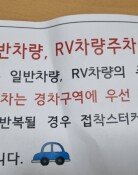S. Korea to quarantine every entrant for 2 weeks instead of travel bans
S. Korea to quarantine every entrant for 2 weeks instead of travel bans
Posted March. 31, 2020 08:02,
Updated March. 31, 2020 08:02
Every South Korean and foreign national entering South Korea from overseas, including those who stayed overseas for a short period, will be required to practice self-quarantine at home or government facilities for two weeks starting Tuesday to contain the spread of COVID-19. So far, only those arriving from the U.S. and Europe have been subject to self-quarantine and the rest of entrants have not experienced any restrictions as long as they pass temperature checks during the entry procedure. The new stronger measure is to be introduced as the risk from regions other than the U.S. and Europe is on the rise and South Korea’s new daily COVID-19 cases have not decreased below 100 even though a social distancing has been practiced for over a week with an aim to open schools on next Monday.
South Korea’s new self-quarantine measure for every entrant will cause a significant burden on the administrative and quarantine systems. Since the South Korean government disregarded the travel ban option when initially handling entrants from China back in January, there is no other choice available. “The government made an announcement without understanding the situation on the ground,” complained a member of a local government put in charge of the transfer and quarantine of entrants. The authorities in charge estimate that up to 7,500 people will be subject to self-quarantine per day – that is 52,500 for one week and 105,000 for two weeks. The current number of people self-quarantined under the supervision of local governments is over 14,000. “It is impossible to provide one-on-one supervision for every entrant even if all resources from health centers, district offices, and the military are pulled together,” said a source of a local government despite the government’s announcement to designate public officials dedicated to self-quarantine management.
The quarantine authorities should provide maximum support to the self-quarantine management of local governments. First of all, detailed routes should be planned out to ensure a smooth transfer of those subject to self-quarantine. Each local government should be notified of information about entrants so that separate traffic arrangements can be made. A delayed transfer procedure can lead to a longer waiting period and overlap with the general public’s travel routes, which increases the risk of infection. Local governments should also recruit sufficient monitoring agents to supervise self-quarantine and utilize all tools possible, including a self-quarantine application, to prevent any loophole in the quarantine system.
Local governments are already under a tremendous amount of administrative burden. Eighty-five percent of the daily entrants of 7,500 are South Koreans. South Korean citizens themselves should strictly follow self-quarantine guidelines to reduce the administrative burden and minimize the spread of COVID-19.







